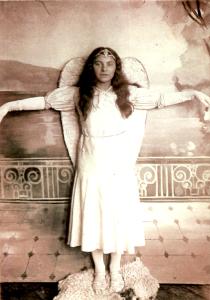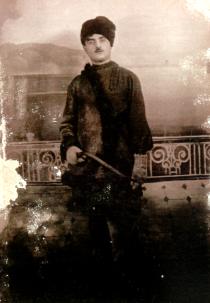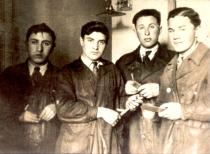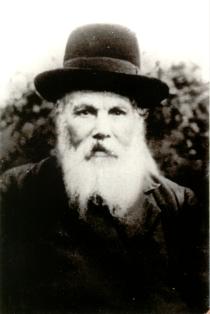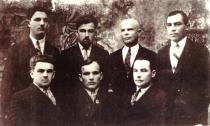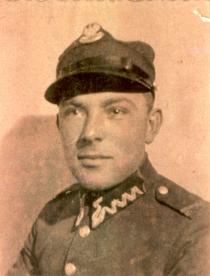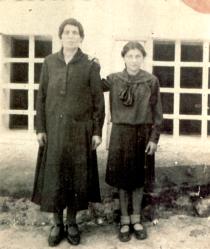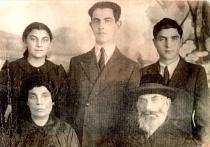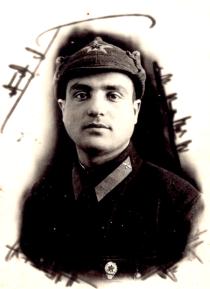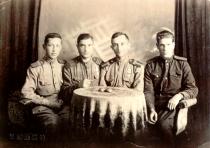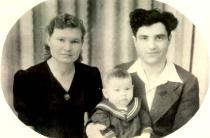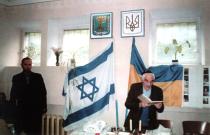This is me, Israel Gliazer, and my wife Ludmila Orlova and our older son Yuri. This photo was taken in Podgaitsy in 1948. This is our first family photo.
At the end of the war in spring 1945 our regiment was relocated to the vicinity of Vladivostok in the Far East. When military action against Japan began our unit within the structure of a division was relocated to the Korean port of Chongjin. A Japanese military school and two divisions were in defense of the town. Shortly after we occupied the port Japan capitulated. I was assigned to headquarters of 25th army in Pyongyang. I issued an army newspaper Krasnoye Znamia (Red banner) there. They were trying to convince me to take up a military career, but I refused.
Firstly, when I was in Vladivostok in 1945 I met a girl of my age. Her name was Ludmila Orlova. I fell in love with her. She came from a Russian family in Tambov. After finishing Moscow Pedagogical College she got a mandatory job assignment and went to work as a Russian teacher in Vladivostok. Ludmila was pregnant. I wasn't quite ready to live my life with her, but I understood that I had to marry her. Besides, I was eager to go home and find out what happened to my family. In late 1946 our son Yuri was born in Vladivostok and shortly afterward I was demobilized. We went to Tambov where we got married. We had a civil ceremony and stayed few weeks with Ludmila's parents. Her parents were religious and belonged to the sect of molokans. They were very decent people. They welcomed me and invited us to stay and live in Tambov, but of course, I couldn't wait to go back to Western Ukraine. I left for Pogdaytsy and my wife and child stayed there hoping that I would come back or find a job and come back to take them to our new home. I heard the horrific truth there - my family perished.
I couldn’t bear the pain of losing my family. I decided to stay and live near their graves the rest of my life. Our house in Pogdaytsy was ruined. I went to work at the printing house. My wife and son joined me soon. Our second son Vladimir was born in 1948. I named him in honor of my brother Velvel. My wife became a teacher of the Russian language and literature. Finally we received an apartment in Pogdaytsy. I was deputy director of the printing house.
In 1962 I finished extramural department of the Ukrainian Polygraphic College. I got a profession of production engineer. In the early 1970s I accepted a job offer from Ternopol. I received an apartment, my wife went to work at school and our children studied at the same school. I was chief of department of printing issues at the regional printing agency and later I became director of a failing printing house. It became one of the best, as usual, when I took up business.
My wife and I lived a good life. We raised our children together, traveled to resorts and hardly ever separated. We worked a lot and could manage very well. We invited guests and friends on birthdays and Soviet holidays, sang songs, listened to music and talked about life. We didn't observe any religious traditions or holidays.

